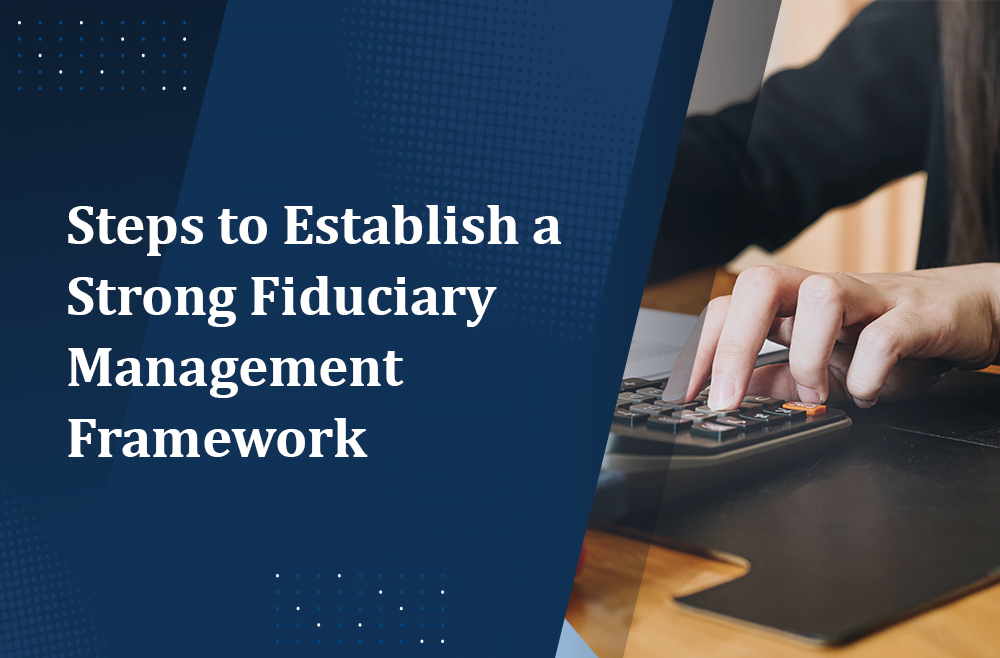Fiduciary management is a vital aspect of a company’s financial operations. A fiduciary management framework establishes a set of guidelines that a company follows when investing and managing its assets. It is a legally binding obligation to act in the best interest of the company and its beneficiaries.
Establishing a strong fiduciary management framework is vital to ensure that the company’s investments are managed correctly, and its assets are protected.
Here are the key steps to establishing a solid framework to support your financial goals.
Step 1: Understand Your Fiduciary Responsibilities
Before implementing a fiduciary management framework, it is crucial to have a clear understanding of your responsibilities as a fiduciary. According to the Employee Retirement Income Security Act (ERISA), a fiduciary must act prudently, with undivided loyalty to the plan participants and beneficiaries. Ensure you understand the legal requirements, your role, your scope, and your authority as a fiduciary.
Step 2: Establish an Investment Policy Statement (IPS)
An IPS outlines the guidelines and objectives for investment decisions that the company will follow. It is crucial to ensure that the IPS is tailored to your organization’s specific needs, including its long-term goals, risk tolerances, and investment preferences. The IPS provides a framework for investment selection, monitoring, and reporting to ensure adherence to a prudent investment process.
Step 3: Hire a Fiduciary Advisor
Working with a fiduciary advisor helps ensure that the company meets its fiduciary responsibilities and establishes a strong fiduciary management framework. Fiduciary advisors must provide unbiased investment advice, based on the best interests of the company and its beneficiaries, and have a legal obligation to act in the company’s best interest.
Step 4: Conduct Due Diligence
As a fiduciary, you must implement an unbiased and thorough due diligence process when selecting and monitoring investment managers, service providers, and other fiduciaries. It is essential to research the risk and return expectations and track record of potential investment options, as well as their fees and expenses.
Step 5: Monitor Investments Regularly
An essential aspect of fiduciary management is regularly monitoring the investments and ensuring they adhere to the IPS’s guidelines. A regular review of the portfolio’s performance helps identify and address issues promptly and ensures that the investments remain aligned with the company’s goals and objectives.
Talking to a financial advisor can provide you with additional insights and help ensure you create a framework catered to your particular needs.
If you are looking for a financial advisor, schedule a consultation with Cold Harbor Financial! Our team is committed to proactively addressing the needs of our clients and building loyal and long-term relationships with them. We have been providing a high level of professional guidance and personal client service since 1990.
Let’s explore the potential of working together!
Opinions expressed in the attached article are those of the author and are not necessarily those of Raymond James. All opinions are as of this date and are subject to change without notice. This material is being provided for information purposes only and is not a complete description, nor is it a recommendation. There is no guarantee that these statements, opinions or forecasts provided herein will prove to be correct.
All investments are subject to risk, including loss. There is no assurance that any investment strategy will be successful. Asset allocation and diversification does not ensure a profit or protect against a loss. It is important to review the investment objectives, risk tolerance, tax objectives and liquidity needs before choosing an investment style or manager.
Please note, changes in tax laws or regulations may occur at any time and could substantially impact your situation. While familiar with the tax provisions of the issues presented herein, Raymond James Financial Advisors are not qualified to render advice on tax or legal matters. You should discuss any tax or legal matters with the appropriate professional.






